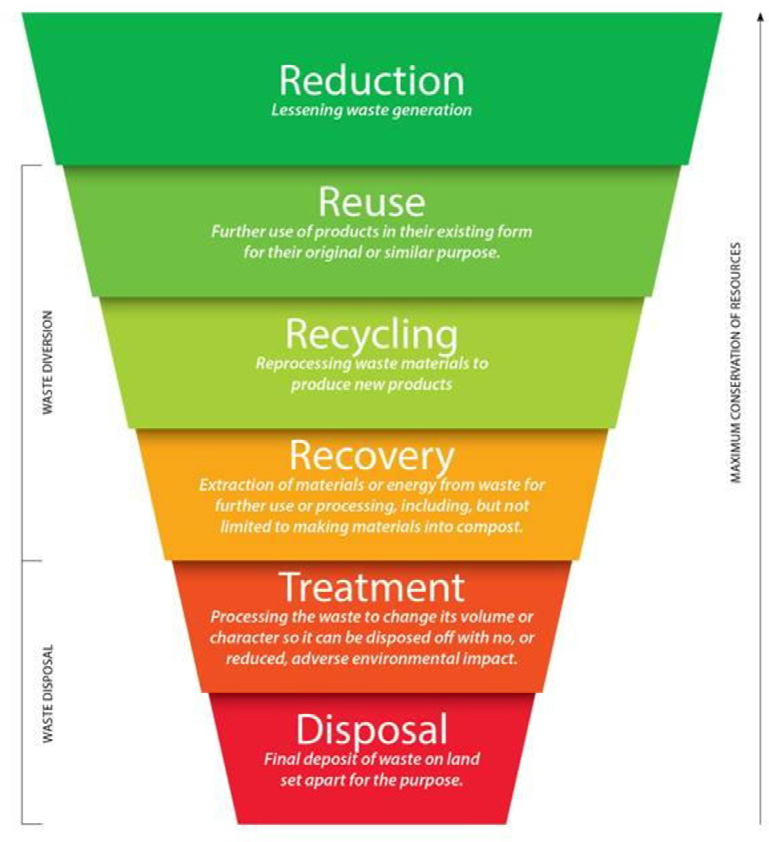Perennial fire outbreaks from landfills and dumpsites have become a worldwide cause for concern as they pose a menace to the environment and human emission of hazardous chemical substances.
In Zimbabwe, open burning of waste is usually practiced in many dumpsites established in major towns and cities as a way of reducing the waste volume. The practice of open burning results in adverse effects on public health and the environment.
Fire-fighting team at Pomona dumpsite, Source: EMA
On the 18th of August 2020, a fire incident occurred at Pomona Dumpsite, releasing dense smog which engulfed nearby suburbs in the northern residential areas of Harare. The smog contained high concentrations of pollutants which significantly reduced the visibility and air quality. The smoke which originated from the smoldering dumpsite fire triggered obscurity and a significant risk to commuters.
Health Impacts of dumpsite fires
Dumpsite fires release significant amounts of greenhouse gases into the air. The gases include carbon dioxide, methane, nitrous oxides and sulphur dioxide. Particulate matter is also associated with air pollution and can lead to severe cases of respiratory diseases.
Open burning of waste is mainly accompanied with the release of persistent organic pollutants (POPs). These include polycyclic aromatic hydrocarbons, dioxins and furans, all of which are carcinogenic and have been linked to reproductive impairment. The effects of these pollutants are harmful to fetuses, infants and children who can be exposed to these pollutants directly or indirectly.
The continuous inhalation of pollutants by humans can cause loss of coordination, nausea, vomiting and eventually death due in the case of prolonged exposure. Scientific researchers have discovered that smoke emitted from landfill or dumpsite fires when inhaled or ingested by humans, symptoms such as nose and throat irritations, bronchoconstriction and respiratory problems, especially in asthmatic patients. These effects can trigger asthma attacks in asthmatic patients.
Open burning in dumpsites is considered extremely dangerous to the nearby residents because it occurs close to the ground rather than through stacks which are high up where air pollutants can be dispersed more properly to minimize their impacts on health.
Dumpsite fires also pose a health risk to fire fighters due to prolonged exposure to pollutants emitted on top of the actual fire and explosion risks. Given the hazards of the harmful products of combustion, there is a need to advise the public of the fire and inform them of the level of concern about potential for health issues
Prevention of dumpsite fires
Solid waste management problems require a holistic approach due to its complexity as there is no simple solution to open waste burning. However, measures must be put in place to prevent open waste burning through improved collection, improved disposal, recycling or general awareness of the dangers of open waste burning. Mitigating the recurrence of dumpsite fires can reduce injury, health, and environmental hazards as well as property damage. The cost of prevention is generally much less expensive compared to the cost of firefighting.

The ideal method of waste management follows the zero-waste model, which emphasizes the reduction of waste quantity
Expansion of dumpsite yards as well as the creation of new recycling facilities could be a prolific method for minimization of open dumpsite fires.
Other options that can be used for reducing the recurrence of open dumpsite fire include excavation, overhauling and ground wetting. Regular compacting of waste is also recommended so that there isn’t enough air to feed the flames.
In the event of a fire outbreak, water supply should be delivered at any point on the dumpsite for the fire fighters. At each of the fires incidents, the fire services should have additional resources necessary for control and extinguishing of the fires.
The risk posed by open burning of waste is very high in Harare and other cities in Zimbabwe where the dumpsites are not engineered and commonly cited close to residential quarters. Fire incidents on open dumpsites, if there is no stringent measure put in place, will continue to pose a serious risk to the health of nearby residents through prolonged or repeated exposure to the toxic pollutants they emit.